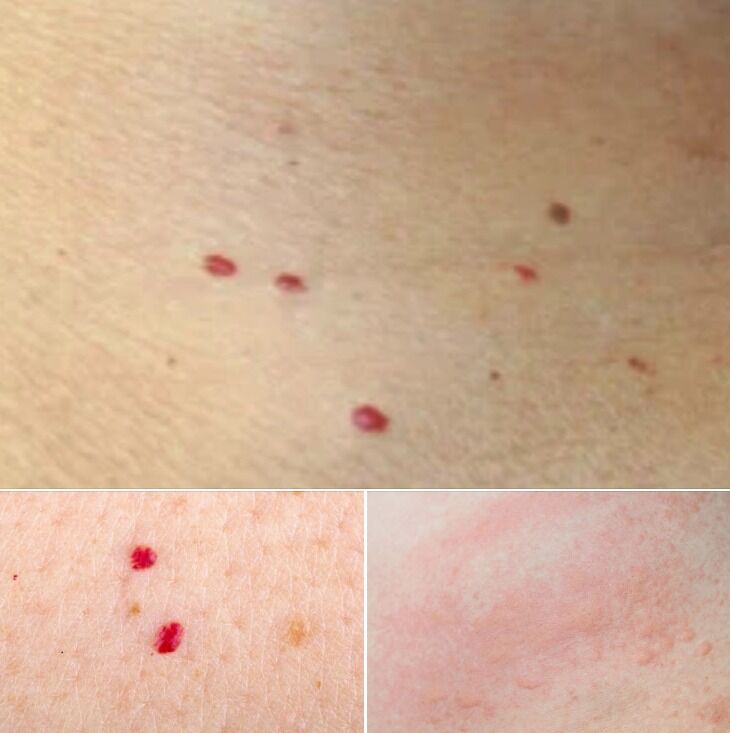
If you’re in the 45 – 65 age range and like me, you’re always on the lookout for any changes in your body. It’s important to stay vigilant and take action if anything seems out of the ordinary. So, imagine my surprise when I found a cluster of red dots on my shoulder one morning. Of course, like any responsible person, I turned to the internet for answers.

Red dots on the skin are actually quite common and can have various causes. In case you find yourself in a similar situation, I’ve compiled a list of some common causes of red dots below. It’s important to note that red dots can come in different sizes, shapes, and colors, and their meanings can vary as well. While some are harmless, others might indicate underlying medical conditions.
Here are some common causes of red dots on the skin:
1. Petechiae and Purpura
These are tiny red dots that appear on the skin due to damaged blood vessels or capillaries. They can be caused by stress, coughing, or certain medications. Although they are usually harmless, they can sometimes indicate underlying platelet disorders.
2. Cherry Angiomas
These are small, raised, bright red bumps that result from an overgrowth of blood vessels. Don’t worry, cherry angiomas are generally harmless and tend to be more common as we age.
3. Heat Rash
Heat rash is a simple and common condition that occurs when sweat becomes trapped in sweat ducts. It can cause itchy, red dots to appear on the skin.
4. Allergic Reactions
If you have an allergic reaction to food, substances, medications, or insect stings or bites, it can lead to redness and an itchy rash on the skin.
5. Folliculitis
Folliculitis is an inflammation of the hair follicles, usually caused by bacterial or fungal infections. It can result in red, pus-filled dots on the skin that can be uncomfortable.
6. Cellulitis
Cellulitis is a bacterial skin infection that causes redness and swelling of the skin. It often feels warm to the touch and usually requires medical attention and treatment with antibiotics.
7. Impetigo
Impetigo is a contagious bacterial infection that primarily affects children. It is characterized by red sores that open, ooze fluid, and later form a crust.
8. Vasculitis
Vasculitis is a condition that involves inflammation of blood vessels. It can cause red dots to appear on the skin and can be associated with autoimmune disorders or infections.
9. Hemangiomas
Hemangiomas are birthmarks that result from abnormal growth of blood vessels. While they are generally harmless, occasional medical intervention may be necessary.
In conclusion, the presence of red dots on the skin doesn’t necessarily indicate a serious condition. However, it’s always a good idea to seek medical advice if:
The red dots are accompanied by fever, pain, or other discomfort.
The dots rapidly increase in size, number, or intensity.
These dots are associated with other symptoms like fatigue, weakness, or dizziness.
Remember, it’s better to be safe than sorry when it comes to our health!
